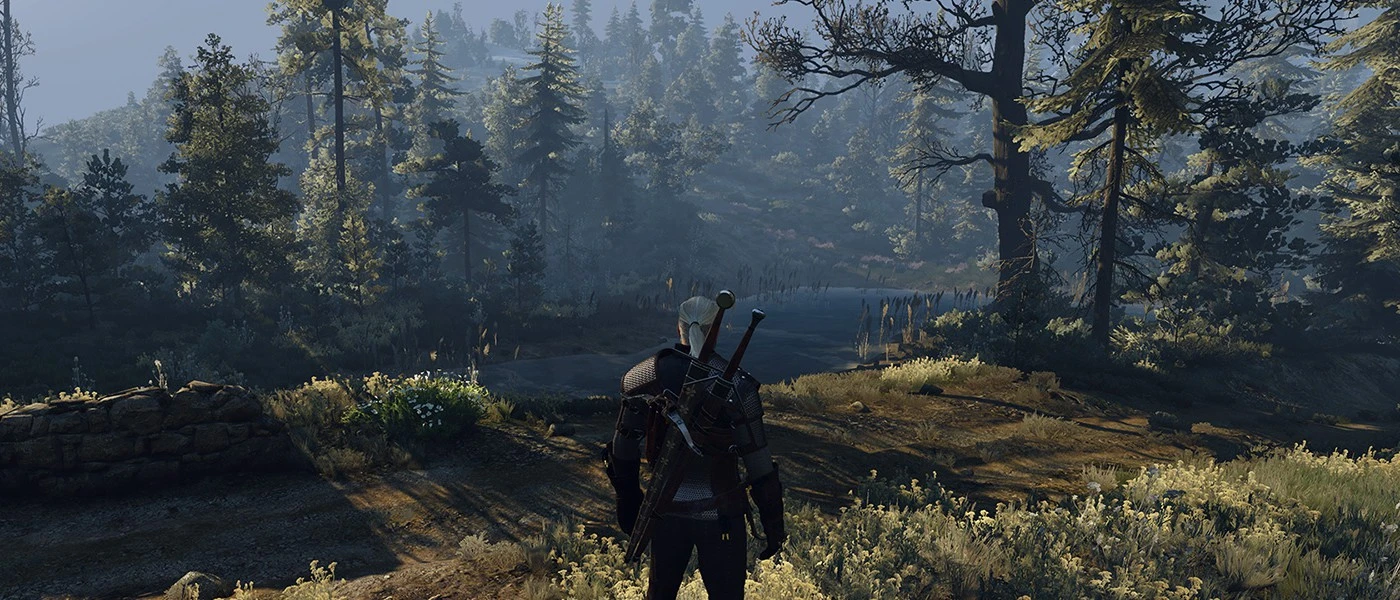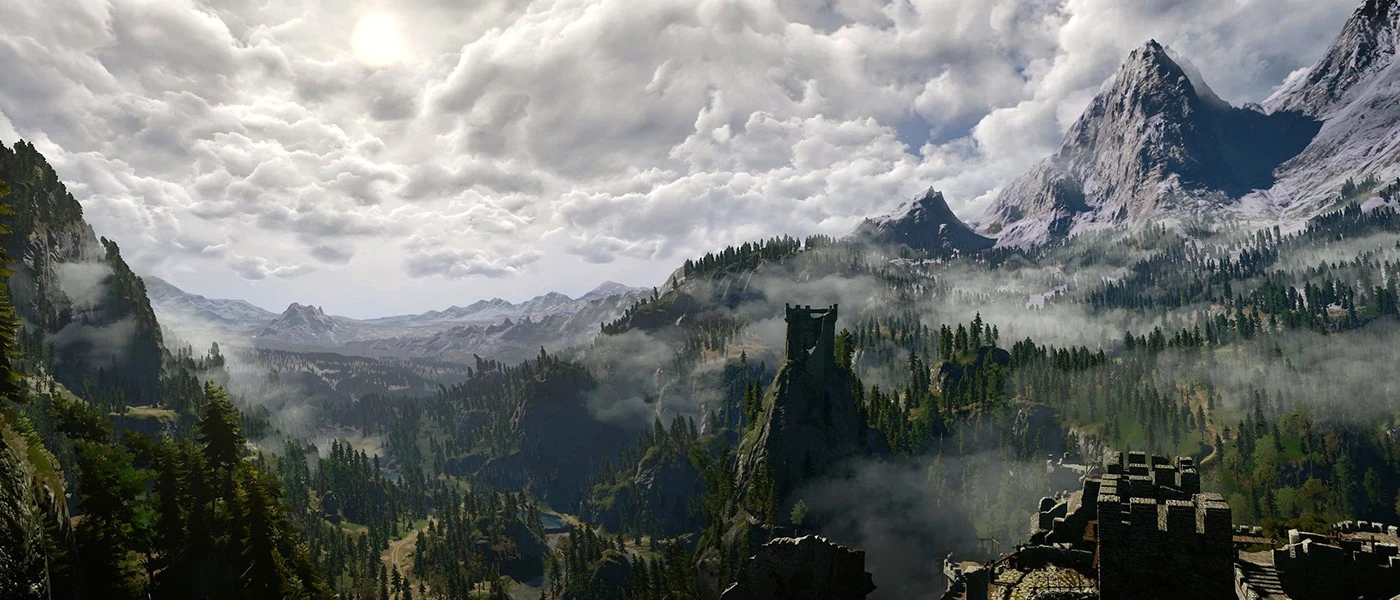The Witcher 3: Wild Hunt is a captivating action RPG that offers players an immersive gaming experience filled with rich storylines, complex characters, and challenging gameplay. For new players, diving into the vast world of The Witcher 3 can be overwhelming, but with the right tips and tricks, they can quickly master the game and enjoy all it has to offer. This ultimate beginner's guide provides essential witcher 3 tips to help new players navigate the game with ease.
In this comprehensive guide, players will learn the fundamentals of how to play Witcher 3, from understanding the basics of character creation and progression to mastering combat techniques and exploring the expansive open world. The guide covers essential witcher 3 beginner tips, including how to effectively utilize character abilities, manage resources, and make the most of the game's intricate crafting system. Whether players are starting on a regular difficulty or diving straight into the challenging witcher 3 death march mode, this guide offers valuable witcher 3 tips and tricks to help them succeed from the early game onward.
Understanding the Basics
Game Interface
The Witcher 3's game interface provides essential information to help you navigate the world and engage in combat. In the top left corner, you'll find your health bar, which depletes when you take damage. Below it is the stamina bar, which is consumed by running, rolling, and casting signs. Stamina regenerates slower in combat but replenishes quickly outside of battle.
The adrenaline bar, represented by the red bar next to your health, fills up as you attack enemies. With full adrenaline, you can perform a powerful heavy attack by holding the shift key and left mouse button. The skull icon indicates your toxicity level, which increases when you consume potions. If your toxicity reaches its maximum, you'll lose health and become weaker.
Main Characters
-
Geralt of Rivia: The protagonist of the game, Geralt is a legendary witcher known as the White Wolf. Despite his emotionless exterior, he forms strong bonds with those around him.
-
Ciri: Geralt's adopted daughter, Ciri is a powerful young woman with Elder Blood, granting her the ability to manipulate space and time. The Wild Hunt pursues her throughout the game.
-
Yennefer of Vengerberg: A talented sorceress with a complex history with Geralt, Yennefer aids him in his search for Ciri while serving the Emperor's interests.
-
Triss Merigold: Another skilled sorceress and close friend of Geralt, Triss helps him navigate the dangers of Novigrad while protecting persecuted mages.
Core Gameplay Mechanics
| Mechanic | Description |
|---|---|
| Combat | Geralt can engage in fast-paced, tactical combat using a combination of swordplay, signs (magical abilities), and potions. Steel swords are effective against humans, while silver swords are best used against monsters. |
| Signs | Geralt has access to five signs: Aard (telekinetic push), Igni (fire blast), Quen (protective shield), Yrden (magical trap), and Axii (mind control). Each sign has unique applications in and out of combat. |
| Alchemy | By gathering ingredients and following recipes, Geralt can craft potions, bombs, and oils to aid him in battle. Potions provide various buffs, while oils can be applied to swords to increase damage against specific enemy types. |
| Exploration | The Witcher 3 features a vast, open world filled with quests, points of interest, and hidden treasures. Discovering new locations and completing side quests is a significant part of the game experience. |
By mastering these core mechanics and familiarizing yourself with the game interface, you'll be well-equipped to tackle the challenges that await you in The Witcher 3. Remember to take your time, explore the world, and experiment with different playstyles to find what works best for you.
Mastering Movement and Combat
In The Witcher 3: Wild Hunt, mastering Geralt's movement and combat abilities is crucial for survival against the game's challenging enemies. Geralt's cat-like reflexes and superhuman strength allow him to perform a variety of defensive and offensive maneuvers, making combat feel like a deadly dance.
Dodging and Rolling
One of the most effective ways to avoid incoming attacks is by dodging and rolling. Tapping the sprint button (A/X on a controller) while moving in battle will cause Geralt to perform a quick dodge, useful for evading fast strikes. Rolling, performed by tapping the sprint button while holding a direction, covers more distance and can help you reposition or create space between Geralt and his foes.
Timing your dodges is key, especially when facing agile enemies like nekkers or wolves. Observe your opponent's attack patterns and anticipate their moves to dodge effectively. Rolling is best used when you need to quickly escape from being surrounded or to close the gap on ranged attackers.
Parrying Techniques
Parrying is another essential defensive technique in The Witcher 3. When timed correctly, parrying allows Geralt to deflect incoming attacks and follow up with a counter-attack. To parry, press the parry button (L2/LT on a controller) just before an enemy's strike connects.
Successful parries will stagger your opponent briefly, providing an opening to strike back. However, be cautious when attempting to parry heavy attacks from larger enemies, as they may break through your guard.
Mastering the timing of your parries is crucial, especially when engaging multiple foes. Alternating between dodging, rolling, and parrying will help you maintain control of the battlefield and keep enemies at bay.
Effective Use of Signs
Witchers have access to powerful magical signs that can greatly enhance their combat prowess. Each sign has unique properties that can be leveraged in different situations:
| Sign | Effect |
|---|---|
| Aard | Telekinetic blast that can stagger or knock down enemies |
| Igni | Pyrokinetic burst that ignites foes and deals damage over time |
| Yrden | Magical trap that slows and damages enemies within its area of effect |
| Quen | Protective shield that absorbs incoming damage |
| Axii | Charm that temporarily stuns or turns enemies into allies |
Incorporating signs into your combat strategy can give you a significant advantage. For example, casting Yrden can slow down fast-moving enemies, making them easier targets for your sword strikes. Igni can be used to ignite groups of foes or to exploit elemental weaknesses. Quen provides a safety net, absorbing hits when you mistime a dodge or parry.
Experiment with different sign combinations and upgrade them through the character development system to unlock their full potential. A well-rounded approach to combat, combining swordplay, signs, and alchemy, will help you overcome even the toughest challenges in The Witcher 3.
Exploring the World of The Witcher 3
The Witcher 3: Wild Hunt features a vast, immersive open world filled with diverse landscapes, bustling cities, and hidden treasures. As Geralt, players can explore the Northern Realms on foot, horseback, or by boat, discovering new quests, points of interest, and breathtaking vistas along the way.
Navigating the Map
The Witcher 3's map is divided into several distinct regions, each with its own unique character and challenges:
| Region | Description |
|---|---|
| White Orchard | A small, war-torn area serving as the game's prologue |
| Velen | A vast, swampy region under Nilfgaardian occupation |
| Novigrad | The largest city in the game, known for its trade and criminal underworld |
| Skellige Isles | A harsh, Viking-inspired archipelago with a proud seafaring culture |
| Kaer Morhen | The remote mountain fortress where witchers are trained |
To navigate the world, players can consult the in-game map, which highlights important locations, quest objectives, and discovered points of interest. The map also allows for fast travel between previously visited signposts, making it easier to traverse long distances quickly.
Using Roach for Travel
Geralt's trusty steed, Roach, is an invaluable companion when exploring the world of The Witcher 3. Summoning Roach allows players to cover ground more quickly and conserve stamina, which is especially useful when traversing the sprawling countryside of Velen or the rugged terrain of Skellige.
To call Roach, simply press the whistle button (X on PlayStation, A on Xbox, or F on PC by default). Roach will automatically navigate to Geralt's location, even if there are obstacles in the way. Once mounted, players can control Roach's speed and direction using the movement controls.
While riding Roach, players can also engage in horseback combat, using swords or crossbows to take down enemies. However, be cautious when fighting on horseback, as Roach can be injured or even killed if she takes too much damage.
Checking Local Message Boards
As Geralt explores the world, he will encounter numerous notice boards in villages, cities, and other populated areas. These notice boards serve as a valuable source of information, often containing new witcher contracts, side quests, and details about local events or points of interest.
Interacting with a notice board will display a list of available notices. Players can read each notice to learn more about the associated quest or activity, and choose to accept or decline the opportunity as they see fit.
Some key things to keep in mind when checking notice boards:
- New notices may appear on previously visited boards as the story progresses or as Geralt's level increases.
- Accepting a quest from a notice board will add it to Geralt's quest log, allowing players to track its objectives and progress.
- Completing notice board quests can provide valuable rewards, including experience points, gold, and rare crafting materials.
By regularly checking notice boards and pursuing the opportunities they present, players can fully immerse themselves in the rich, living world of The Witcher 3, discovering new adventures and shaping Geralt's legend as a master witcher.
Essential Skills and Upgrades
As Geralt progresses through his adventures in The Witcher 3, it becomes increasingly important to invest in essential skills and upgrades to enhance his combat prowess and survivability. By carefully allocating skill points, upgrading weapons and armor, and mastering the art of crafting and alchemy, players can transform Geralt into a formidable witcher capable of tackling even the most challenging foes.
Investing in Skill Points
Throughout the game, Geralt earns experience points by completing quests, defeating enemies, and exploring the vast open world. As he levels up, he gains skill points that can be invested in various abilities across four distinct skill trees: Combat, Signs, Alchemy, and General.
To maximize Geralt's potential, it's crucial to focus on skills that complement your preferred playstyle. For example, players who favor fast-paced swordplay may want to invest in the Combat tree, unlocking abilities such as:
- Muscle Memory: Increases fast attack damage.
- Precise Blows: Increases the chance of landing critical hits.
- Whirl: Enables Geralt to perform a devastating spinning attack.
Alternatively, those who prefer a more magical approach can invest in the Signs tree, unlocking powerful abilities like:
- Melt Armor: Increases the armor-piercing capabilities of the Igni sign.
- Exploding Shield: Causes the Quen sign to explode when broken, damaging nearby enemies.
- Puppet: Allows Geralt to take control of an enemy using the Axii sign.
Upgrading Weapons and Armor
As Geralt explores the world of The Witcher 3, he will come across a wide variety of weapons and armor. To ensure that he remains competitive against increasingly powerful enemies, it's essential to regularly upgrade his equipment.
Weapons and armor can be upgraded by visiting blacksmiths and armorers scattered throughout the game world. These craftsmen can improve the stats of Geralt's gear, provided he has the necessary materials and funds. Some of the most important upgrades include:
| Upgrade Type | Effect |
|---|---|
| Damage | Increases the base damage of weapons |
| Armor | Enhances the protective capabilities of armor |
| Sockets | Allows the insertion of runes and glyphs for additional bonuses |
In addition to upgrading existing gear, Geralt can also craft new weapons and armor using diagrams found throughout the world. These diagrams often require rare materials and specialized knowledge, making them a valuable investment for players seeking the best equipment.
Crafting and Alchemy
Crafting and alchemy play a vital role in Geralt's success as a witcher. By gathering ingredients and following recipes, players can create powerful potions, oils, and bombs that provide significant advantages in combat.
Some of the most essential crafting and alchemy skills include:
- Heightened Tolerance: Increases the maximum toxicity Geralt can tolerate, allowing him to consume more potions in battle.
- Refreshment: Causes potions to heal Geralt upon consumption.
- Delayed Recovery: Extends the duration of potion effects.
To make the most of crafting and alchemy, players should actively seek out new recipes and gather ingredients as they explore the world. Herbalists, alchemists, and other merchants often sell valuable recipes, while ingredients can be found in the wild or looted from defeated enemies.
By investing in essential skills, upgrading weapons and armor, and mastering the art of crafting and alchemy, players can ensure that Geralt is well-prepared for the challenges that await him in The Witcher 3. Whether facing off against towering monsters or engaging in political intrigue, these key upgrades will prove invaluable in Geralt's quest to become the ultimate witcher.
Managing Resources
In The Witcher 3: Wild Hunt, managing your resources effectively is crucial for survival and success. As Geralt explores the vast open world, he will accumulate a wide variety of items, including weapons, armor, crafting materials, and alchemy ingredients. Knowing how to efficiently manage your inventory, gather and use alchemy ingredients, and understand weight limits will help you make the most of your resources and avoid becoming overburdened.
Inventory Management
Geralt's inventory can quickly become cluttered with items acquired through looting, crafting, and purchasing. To keep your inventory manageable:
- Regularly sell or dismantle unwanted items, such as low-quality weapons and armor, to free up space and earn gold or crafting components.
- Store important items that you don't currently need in storage chests found throughout the world. These chests are linked, allowing you to access your stored items from any location.
- Invest in saddlebags for Roach, which can be purchased from merchants or won through horse races. Saddlebags significantly increase your inventory capacity.
- Prioritize keeping essential items like crafting materials, alchemy ingredients, and valuable treasures, while discarding or selling less important items.
Gathering and Using Alchemy Ingredients
Alchemy is a powerful tool in The Witcher 3, allowing Geralt to create potions, oils, bombs, and decoctions that provide various benefits and buffs. To make the most of alchemy:
- Gather alchemy ingredients from herbalists, alchemists, and by harvesting plants in the wild.
- Craft potions, bombs, and oils whenever you have the necessary ingredients, as they will automatically refill when you meditate, provided you have strong alcohol in your inventory.
- Experiment with different recipes to create powerful concoctions tailored to your playstyle and the enemies you face.
- Keep an eye out for rare alchemy ingredients, such as monster parts, as they are often required for the most potent recipes.
| Alchemy Item | Effect |
|---|---|
| Potions | Provide temporary buffs and restore health |
| Oils | Increase damage against specific enemy types |
| Bombs | Deal area-of-effect damage and apply status effects |
| Decoctions | Grant powerful, long-lasting buffs with increased toxicity |
Understanding Weight Limits
Geralt has a limited carrying capacity, and exceeding this limit will cause him to become overburdened, slowing his movement and preventing him from fast traveling. To manage your weight effectively:
- Invest in the "Strong Back" skill in the General skill tree, which increases your carrying capacity by 60 for just one ability point.
- Upgrade your saddlebags to further increase your inventory space.
- Regularly sell or dismantle heavy items, such as weapons and armor, that you no longer need.
- Use alchemy ingredients to craft potions, oils, and bombs, as they weigh less than their individual components.
By following these witcher 3 tips for managing your resources, you'll be able to craft powerful items, maintain a clutter-free inventory, and avoid the frustration of being overburdened. Remember to regularly assess your inventory, prioritize essential items, and make use of storage chests and alchemy to optimize your resource management in The Witcher 3: Wild Hunt.
Tips for Beginners
As a new player in The Witcher 3: Wild Hunt, it's essential to keep a few key tips in mind to ensure a smooth and enjoyable experience. These beginner-friendly witcher 3 tips will help you navigate the vast world, level up efficiently, and make the most of the game's various mechanics.
Saving Your Game Regularly
One of the most crucial habits to develop early on is saving your game frequently. The Witcher 3 features an autosave system that triggers upon completing quests or reaching certain checkpoints. However, relying solely on autosaves can lead to frustration if you encounter unexpected challenges or wish to explore freely without fear of losing progress.
To avoid setbacks, make it a habit to manually save your game:
- Before engaging in combat or entering dangerous areas
- After completing significant quests or discovering important locations
- Periodically while exploring the open world
By saving regularly, you can experiment with different approaches, take risks, and easily revert to a previous state if needed.
Leveling Up Efficiently
Efficient leveling is key to tackling the game's more demanding content. To maximize your experience gains and level up quickly, consider the following tips:
- Complete side quests and witcher contracts appropriate for your level
- Explore points of interest, such as hidden treasures and monster nests
- Engage in combat and defeat enemies, as they provide valuable experience
- Craft and use witcher gear, as it often comes with bonus experience upon crafting
| Activity | Experience Gain |
|---|---|
| Main Quests | High |
| Side Quests | Moderate |
| Witcher Contracts | Moderate |
| Exploration | Low to Moderate |
| Combat | Low |
By focusing on a mix of these activities, you'll steadily level up and acquire the necessary skills and equipment to face the game's challenges.
Making Use of Meditation
Meditation is a valuable tool that allows Geralt to regenerate health, replenish potions, and pass time. To meditate, simply access the meditation menu and select the desired duration. Keep in mind that meditation benefits vary based on the game's difficulty setting:
- Story and Sword: Meditation restores health and cleanses toxicity
- Blood and Broken Bones and higher: Meditation only replenishes potions using available alcohol
Regardless of difficulty, meditation is useful for:
- Regenerating health between battles (on lower difficulties)
- Replenishing potion stocks using alcohol from your inventory
- Passing time to reach specific quest objectives or merchant availability
By strategically using meditation, you can maintain Geralt's effectiveness in combat and efficiently manage resources throughout your journey.
Conclusion
The Witcher 3: Wild Hunt is a captivating and immersive gaming experience that offers endless opportunities for adventure, exploration, and character growth. By mastering the game's core mechanics, managing resources effectively, and making strategic choices, players can fully immerse themselves in the rich, living world of The Witcher 3. Whether you're a seasoned gamer or a newcomer to the series, the tips and strategies outlined in this guide will help you navigate the challenges and uncover the secrets that await you.
As you embark on your journey as Geralt of Rivia, remember to approach each challenge with patience, creativity, and an open mind. Embrace the game's depth and complexity, and don't be afraid to experiment with different playstyles, builds, and tactics. With the knowledge and insights provided in this ultimate beginner's guide, you'll be well-equipped to face the dangers of the Northern Realms and forge your own legendary tale as a master witcher.
FAQs
What are the initial steps I should take in Witcher 3?
To kick off your adventure in Witcher 3 on the right foot, consider the following strategies:
- Always quicksave before engaging in combat.
- Use meditation for an hour to fully restore your health.
- Before challenging fights, apply oils to your weapons and consume potions.
- Master the art of dodging, rolling, and parrying during combat.
- Visit every notice board you encounter in new regions to gather quests and information.
- While riding your horse, stick to the roads to enable indefinite galloping.
How should I start a new game in Witcher 3?
To embark on a new journey in Witcher 3, you can initiate a New Game+ from the Main Menu after completing the main storyline. However, it's important to note that New Game+ cannot be started from a save file that's already in New Game+ mode. For a fresh start with Geralt, you'll need to begin a standard new game.
Is Witcher 3 suitable for players new to gaming?
Yes, while Witcher 3 might seem daunting at first glance to newcomers, it is designed to gradually introduce players to its complex mechanics. This includes understanding Witcher gear, mastering the Gwent card game, upgrading character abilities, and navigating the alchemy system, making it a rewarding experience for beginner gamers.
What does the 40-second rule in Witcher 3 entail?
The 40-second rule in Witcher 3 is a design principle aimed at maintaining player engagement during exploration. It ensures that players will discover a point of interest approximately every 40 seconds while exploring the game's expansive world, keeping the adventure lively and intriguing.








Comments